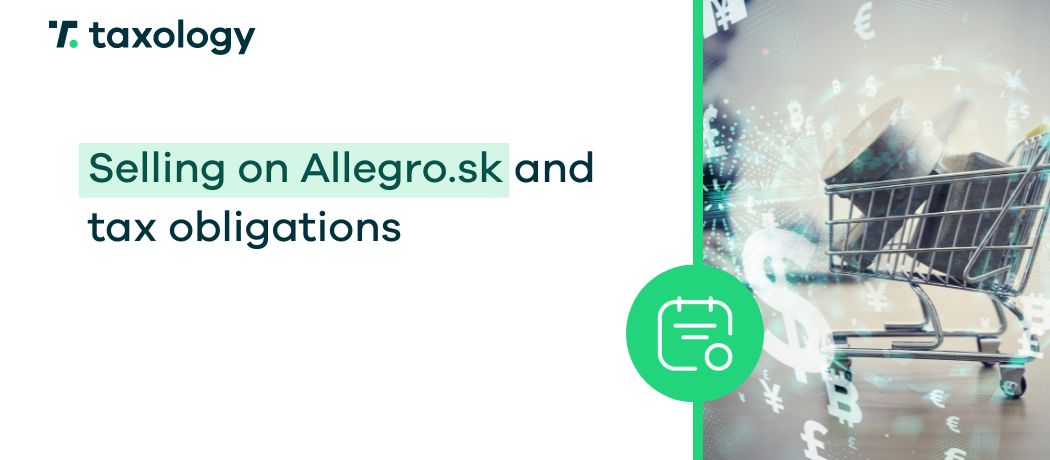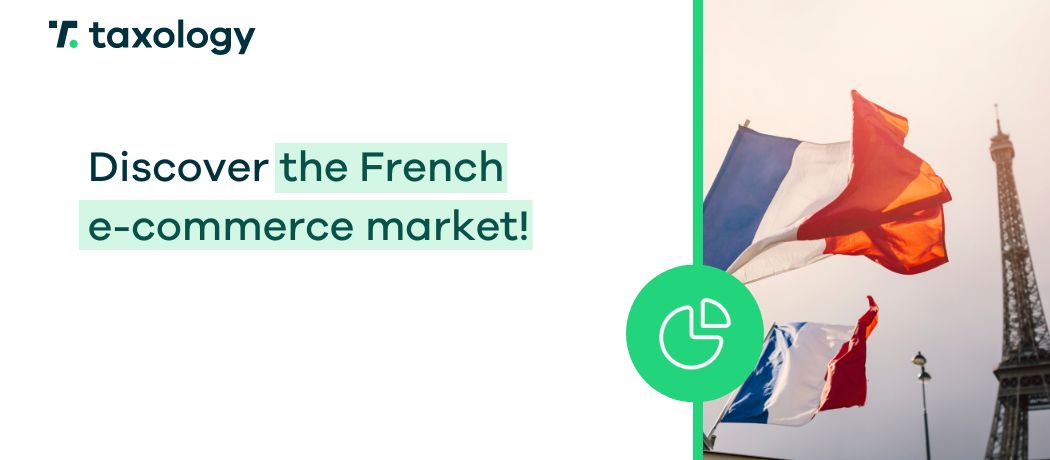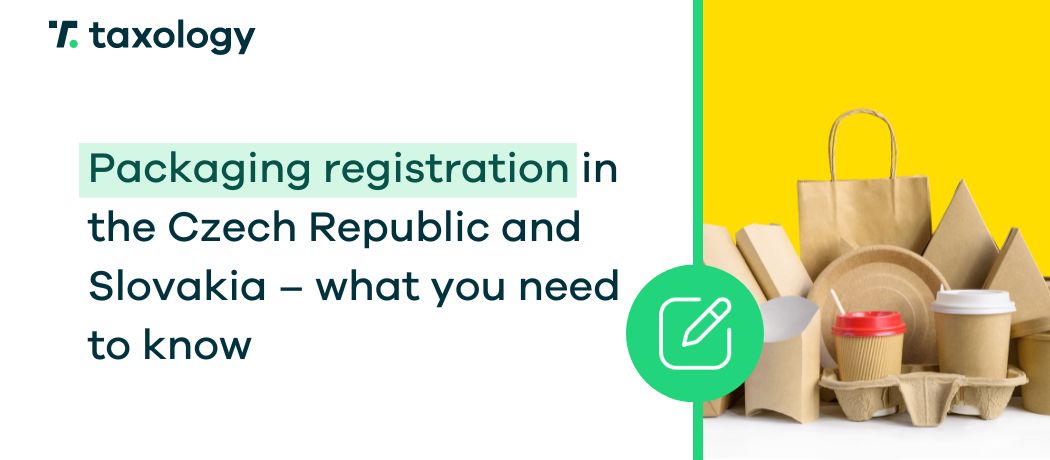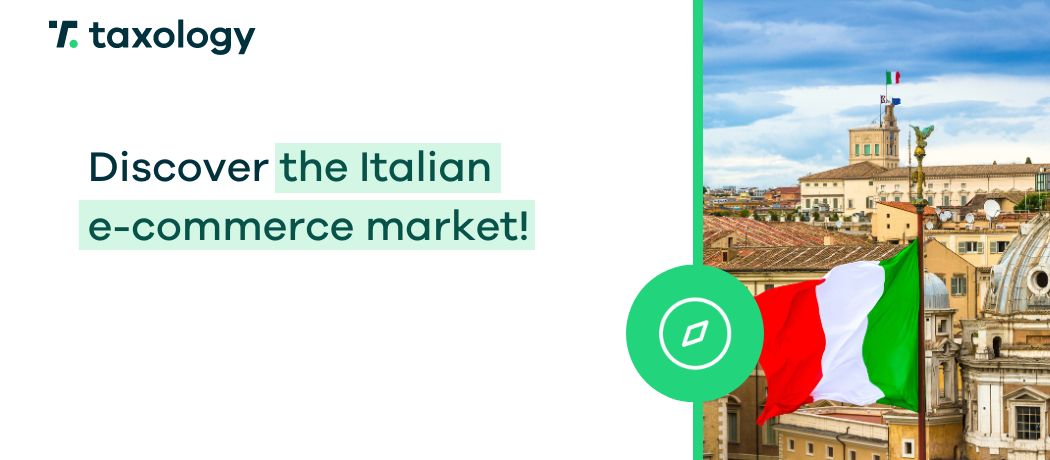France is one of the largest and wealthiest countries in Europe, making it an extremely attractive market for expansion for many entrepreneurs in the e-commerce sector. However, like any other […]
Read in: 5 minSelling on Allegro.sk and tax obligations
- Last update:
- Published: 20.03.2024
- Read in: 5 min
In the first week of February, Allegro announced that it plans to launch the Slovak version of its platform – Allegro.sk – by the end of March. Therefore, if you are interested in expanding into this market, you might be curious about the tax obligations that will await you if you conduct e-commerce activities in Slovakia.
If this is the case, we invite you to read this article, which will explain issues related to VAT registration and settlements in Slovakia, as well as the VAT OSS procedure!
Tax and VAT rates in Slovakia
When selling goods and services in the Slovak market, it is necessary to remember about VAT. When transactions involve private customers, the VAT rates applicable in the country to which goods are shipped should be applied. In this case, it will be Slovakia.
However, to be more specific, it should be emphasized that the tax obligation arises when selling on Allegro.sk if:
- Goods are shipped from Poland or another EU country to customers in Slovakia, and the limit for intra-community distance sales of goods (WSTO), which is 10,000 EUR, is exceeded. It is worth adding that until the limit is exceeded, sales can be settled as domestic sales, applying the VAT rates valid in the country from which the goods are shipped.
- Goods are shipped from within Slovak territory.
Moreover, the standard VAT rate in Slovakia is 20%, and there are also reduced rates of 10% and a zero rate. If you want to learn which goods and services fall under these rates, check out our article – VAT Slovakia 2024.
Deadlines for filing VAT returns in Slovakia
In Slovakia, VAT returns are filed electronically, and the default period for their submission is one month, but this period is also mandatory for new taxpayers for at least 12 months.
An alternative to monthly VAT returns in Slovakia are quarterly returns, however, these are only available to entrepreneurs who have not exceeded a turnover of 100,000 euros.
In both cases, the deadline for submitting VAT returns is the 25th day of the month following the settlement period.
When exactly should you obtain a Slovak VAT number?
It is worth specifying exactly when a local VAT number will be necessary during sales on the Slovak version of Allegro, and this will occur in two situations.
- Allegro.sk and a Warehouse in Slovakia
If an entrepreneur sells on Allegro.sk, has a warehouse in Slovakia, and ships goods from it to private customers in the country, then such sales should be settled locally.
In this case, the special VAT OSS procedure does not apply, nor are there any limits.
- Exceeding the WSTO Limit and Not Using VAT OSS
If an entrepreneur, who has exceeded the WSTO limit of 10,000 euros and could use the VAT OSS procedure, does not do so for some reason, then they must settle their sales locally, for which a Slovak VAT number will be necessary.

Need help with VAT or e-commerce accounting?
Reach out to us and our VAT Compliance and accounting specialists will take care of the rest!
Schedule a consultationThe VAT registration process abroad
VAT registration in Slovakia can be completed in one of three ways – online, by correspondence, or in person. However, you can learn more about this process from our article dedicated entirely to it – VAT Registration in Slovakia | Taxology.
However, it is worth noting that it is advisable to take care of obtaining the local VAT number sufficiently in advance, as in some countries it can take even 6-12 months, as is the case in Spain or Great Britain.
VAT OSS procedure and sales on Allegro.sk
An alternative option for local settlements is to use the VAT OSS procedure. It allows you to settle all your sales to private customers from other European Union countries.
VAT OSS settlements are made within a single, quarterly declaration, submitted to the Second Tax Office Warsaw-Śródmieście, which includes:
- all member states of consumption (receipt of goods),
- applied VAT rates according to the destination country’s rates,
- tax base according to the given VAT rate,
- amount of VAT.
Registration for VAT OSS
To settle your sales on Allegro.sk using VAT OSS, you first need to register for it. This can be done in the country where the business activity is registered.
In the case of Poland, registration is carried out by submitting the VAT VIU-R form, which is sent through the e-Declarations system, using a qualified electronic signature.
However, you can read more about VAT OSS in our article – What is VAT OSS? Changes to VAT settlements in the EU.
VAT OSS and documenting sales
Choosing the VAT OSS procedure often raises doubts, so below we have answered questions about this procedure that we most often hear.
Is VAT-OSS enough for selling on Slovak Allegro?
Yes, in the case when goods are sent to Slovakia from a warehouse in Poland and their recipients are private customers (B2C sales).
If, however, you have a warehouse in Slovakia and the goods are shipped from there, then you must settle your sales locally, which requires obtaining a Slovak VAT number.
Do I need to issue invoices / receipts?
Tax regulations do not require issuing VAT invoices for sales settled under the VAT OSS procedure.
At the same time, if VAT OSS sales are taxed in another EU country, taxpayers are not required to maintain sales records using cash registers.
In what language and currency should I issue an invoice?
Using the VAT OSS procedure, the taxpayer issuing the invoice is governed by the identification country’s regulations, which in Poland do not include specific guidelines related to the currency or language in which the invoice should be issued. Usually, however, invoices are issued in the customer’s country language or in English.
What rate should be included on the invoice?
When settling sales on Allegro.sk in the VAT OSS procedure, the Slovak VAT rate should be applied.
Sales below the 10,000 EUR limit and documenting sales
Apart from VAT OSS, we also often encounter questions about documenting sales when the 10,000 euro limit is not exceeded. Below we have answered those that we hear most often.
If I’m selling on a smaller scale (below the annual limit) and am not registered for VAT OSS – how do I document sales? Do I need to issue invoices, and what VAT rate do I put on the invoice?
If the supplier does not use OSS (the EU procedure), then in relation to WSTO (Intra-community distance sales of goods), in each case, they are obliged to issue an invoice, and invoicing is subject to the regulations of the country where the sale is taxed.
Do I need to issue receipts, or can I take advantage of the cash register exemption?
In this case, sales transactions are subject to general cash register obligations. However, it is possible to take advantage of the exemption for goods delivery in a shipping system (by mail or courier shipments), if the goods supplier receives full payment for the performed service via post, bank, or cooperative savings and credit union (respectively into the taxpayer’s bank account or the taxpayer’s account at a cooperative savings and credit union of which they are a member), and from the records and payment documentation it is clear what specific service was performed and for whom (buyer’s data, including their address).
It should be noted that certain groups of goods have been excluded from the above exemption – e.g., perfumes, car parts. We suggest verifying this issue with an advisor.
Sales on Allegro.sk and tax obligations - summary
The debut of the Allegro platform in Slovakia is undoubtedly a catalyst for expansion for many Polish entrepreneurs into this market. However, it’s important to remember that haste is often a poor advisor, and some issues, such as tax matters, require time. Therefore, it’s wise to take care of them well in advance.
This includes, among other things, VAT registration in Slovakia or registration for the VAT OSS procedure, if it is through it that the entrepreneur plans to settle their sales tax to private customers in Slovakia. Furthermore, it is necessary to bear in mind that the taxation method will depend on the scale of sales (WSTO limit) or the distribution model (country of storage and dispatch of goods).
Therefore, if after reading this article you have any doubts or questions for which you are seeking answers, schedule a consultation, and our specialists will be happy to provide support. This applies regardless of whether the issues are related to VAT and VAT OSS, such as declarations, registrations, or settlements, or to accounting in e-commerce!




